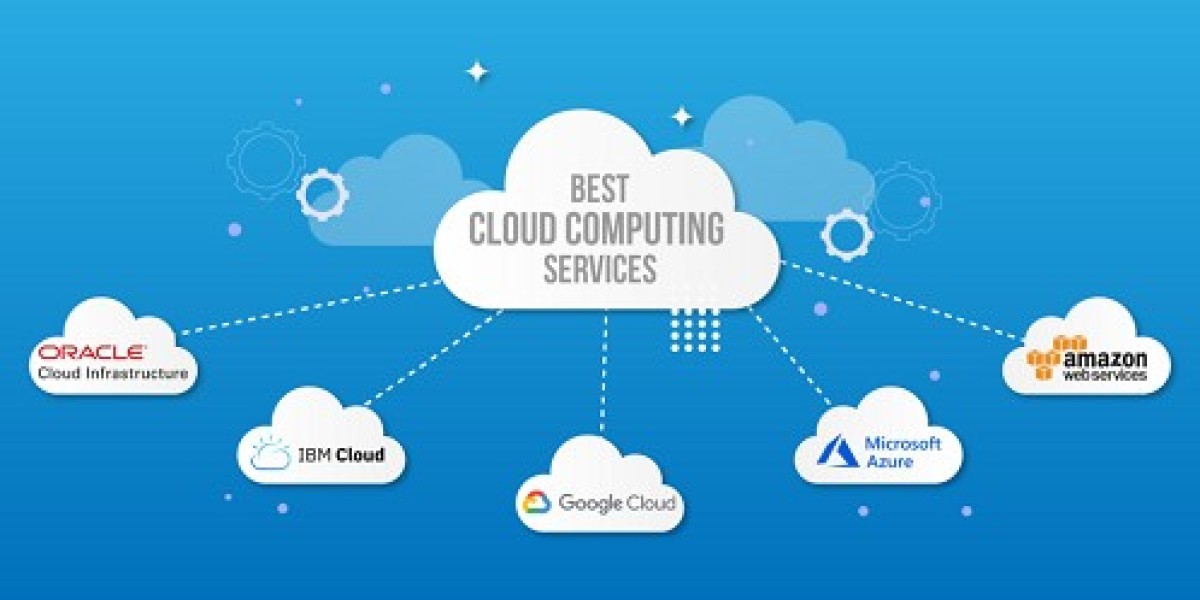Cloud infrastructure services have emerged as a cornerstone of modern digital transformation. These services offer scalable, flexible, and cost-effective IT resources that businesses can access over the internet. Rather than investing in expensive hardware and data centers, companies are turning to cloud-based infrastructure to streamline operations, support remote work, and drive innovation. As digital needs grow, cloud infrastructure becomes indispensable for organizations seeking to remain agile and competitive.
Cloud infrastructure services encompass a broad range of solutions including computing power, networking, storage, and software platforms. Delivered through models like Infrastructure as a Service (IaaS), Platform as a Service (PaaS), and Software as a Service (SaaS), these offerings enable businesses to build and manage applications without the complexity of maintaining physical infrastructure. Public, private, and hybrid cloud models provide tailored options to meet specific organizational needs, whether it’s security, scalability, or compliance.
Get a sample PDF of the report at –
https://www.marketresearchfuture.com/sample_request/1599
The advantages of cloud infrastructure services are manifold. First and foremost, they offer on-demand access to computing resources, allowing businesses to scale up or down based on demand. This flexibility leads to significant cost savings as companies pay only for what they use. Additionally, cloud services enhance collaboration through centralized data access, bolster cybersecurity with regular updates and patches, and reduce downtime through robust disaster recovery solutions. These benefits collectively support business continuity and operational efficiency.
The cloud infrastructure landscape continues to evolve with several noteworthy trends. One major trend is the widespread adoption of hybrid and multi-cloud strategies, giving organizations more control and flexibility. Edge computing is also gaining traction, bringing cloud capabilities closer to where data is generated to improve latency and performance. Furthermore, the integration of AI and machine learning with cloud platforms is enhancing decision-making, automation, and customer personalization. Sustainability is also a growing focus, with providers investing in energy-efficient data centers.
Different deployment models cater to diverse business requirements. Public cloud services are hosted on third-party platforms and are ideal for startups and small businesses due to their affordability and scalability. Private clouds, managed internally or by third parties, offer enhanced control and security—making them suitable for industries like finance and healthcare. Hybrid cloud combines the best of both worlds, enabling businesses to maintain sensitive data on private servers while leveraging the public cloud for non-critical operations.
Cloud infrastructure services are generally categorized into three models. SaaS (Software as a Service) delivers software applications over the internet, eliminating the need for installations and maintenance. PaaS (Platform as a Service) provides a framework for developers to build, test, and deploy applications efficiently. IaaS (Infrastructure as a Service) offers essential computing resources like virtual machines and storage, giving IT teams complete control over infrastructure management. Each model provides unique benefits depending on the business use case.
Security remains a top priority for businesses moving to the cloud. Providers are implementing advanced encryption, access controls, and compliance certifications to address these concerns. With features like automated threat detection and real-time monitoring, cloud platforms help organizations safeguard their data against cyber threats. Moreover, adherence to standards such as GDPR, HIPAA, and ISO ensures that data governance requirements are met, giving businesses peace of mind when handling sensitive information.
Cloud infrastructure services are being widely adopted across various sectors. In healthcare, they support electronic health records and telemedicine platforms. In retail, cloud solutions power e-commerce platforms, inventory systems, and customer analytics. Financial institutions use cloud infrastructure for secure transactions, fraud detection, and mobile banking services. Even in manufacturing, cloud-enabled IoT systems monitor equipment and optimize production lines. The versatility of cloud solutions allows them to drive value in virtually every industry.
Despite the many benefits, migrating to cloud infrastructure is not without challenges. Concerns around data privacy, vendor lock-in, and integration with legacy systems can complicate cloud adoption. Businesses must assess their readiness, create robust migration strategies, and choose the right service model to ensure a smooth transition. Ongoing training and governance policies are also crucial for maximizing the return on investment and maintaining control over cloud resources.
Browse a Full Report –
https://www.marketresearchfuture.com/reports/cloud-infrastructure-services-market-1599
Looking ahead, the cloud infrastructure services market is poised to grow as organizations continue to embrace digital-first strategies. Emerging technologies like 5G, blockchain, and AI will further enhance cloud capabilities, opening new avenues for innovation and efficiency. As businesses demand greater speed, security, and customization, cloud providers will evolve their offerings to meet these expectations. In this dynamic environment, cloud infrastructure will remain a vital enabler of technological advancement and business transformation.
Cloud infrastructure services have revolutionized the way businesses operate, enabling greater flexibility, efficiency, and innovation. By offering scalable computing resources through diverse models and deployments, these services meet the demands of organizations across all industries. As technology continues to evolve, so too will the role of cloud infrastructure—empowering businesses to stay agile and competitive in a rapidly changing digital landscape.
Top Trending Reports:
Smart Education and Learning Market
Unified Facility Management Market
Enterprise Mobile Application Development Platform Market
Contact
Market Research Future (Part of Wantstats Research and Media Private Limited)
99 Hudson Street, 5Th Floor
New York, NY 10013
United States of America
+1 628 258 0071 (US)
+44 2035 002 764 (UK)
Email: sales@marketresearchfuture.com
Website: https://www.marketresearchfuture.com








